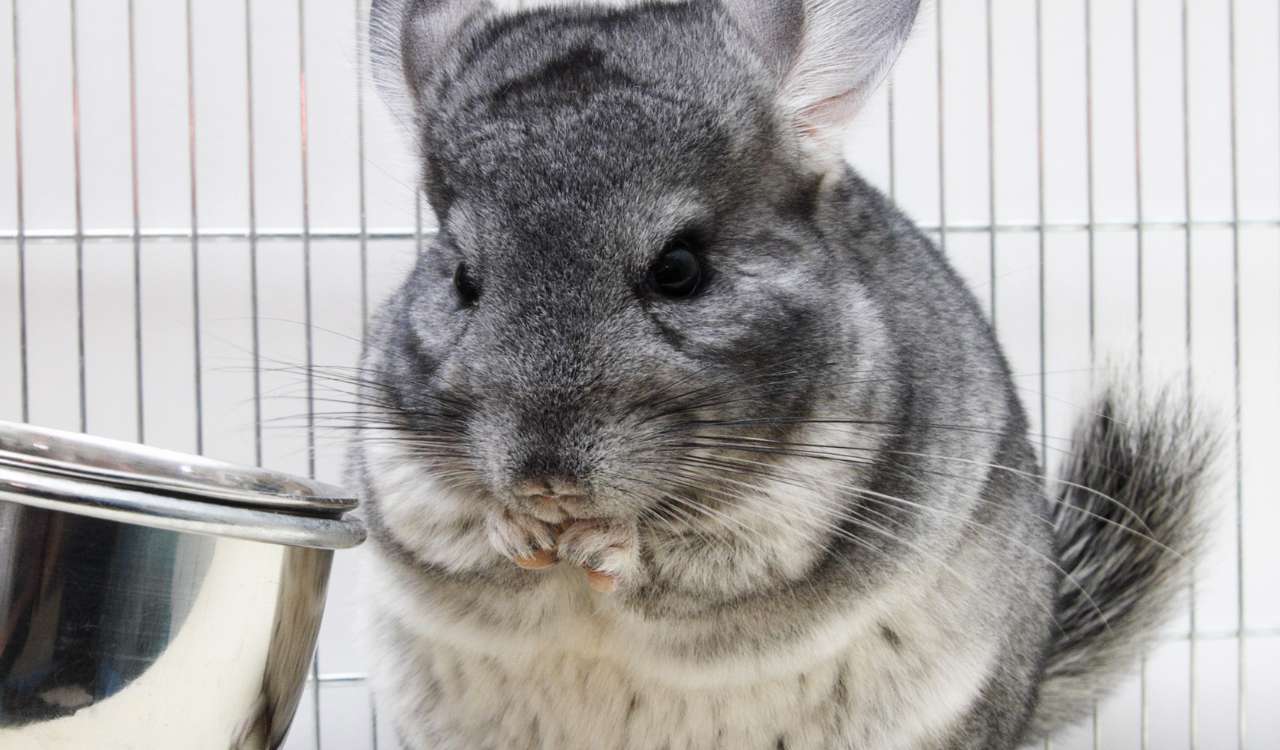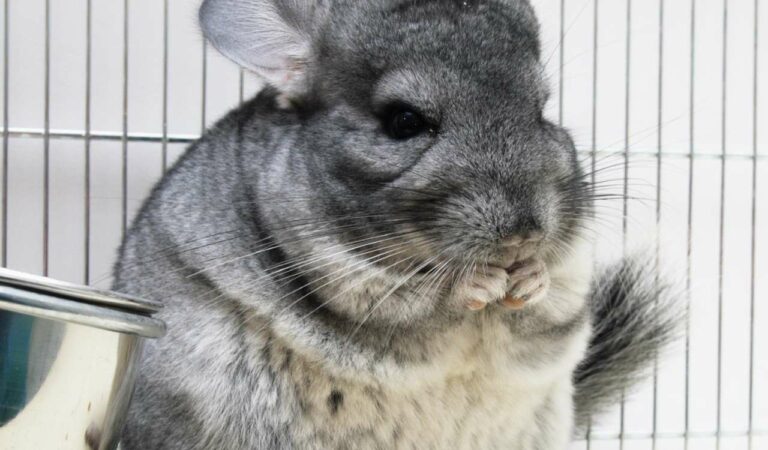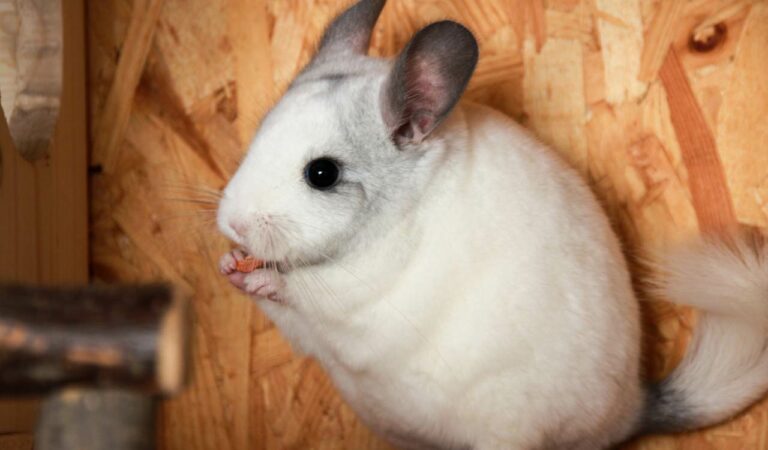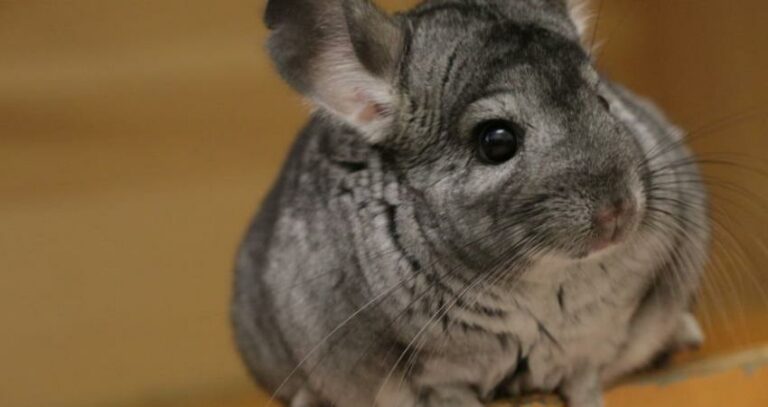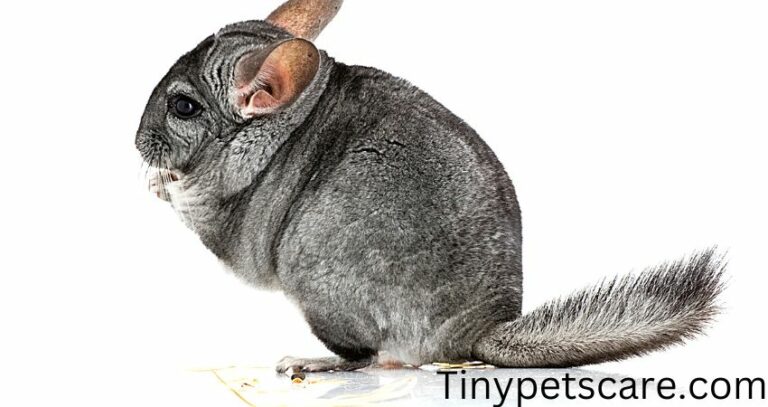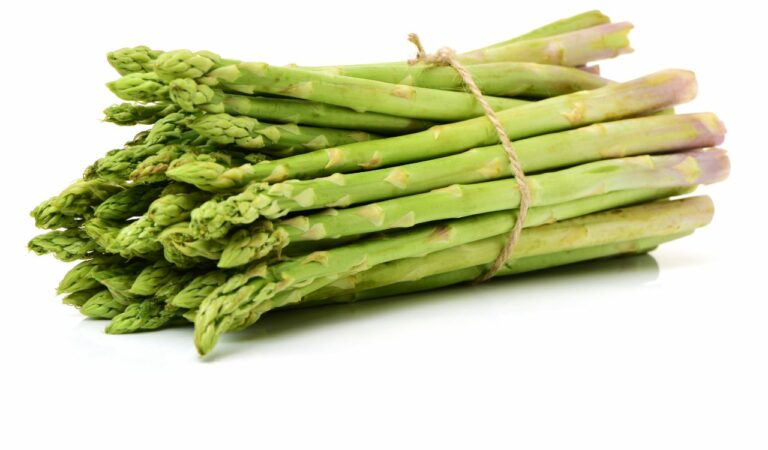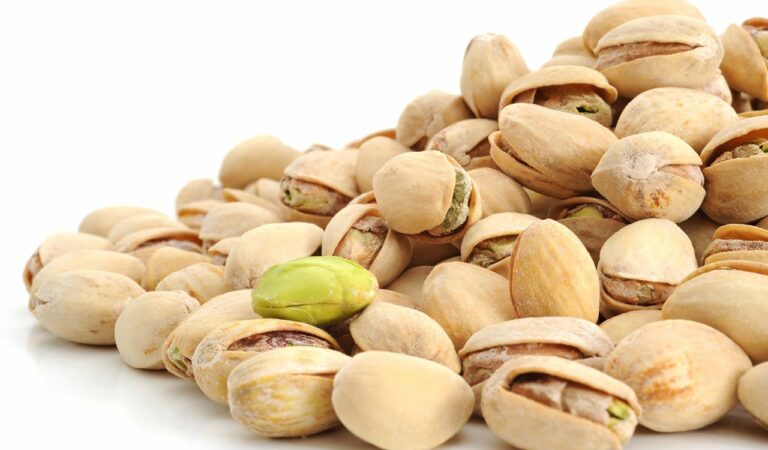Can Chinchillas Eat Pomegranates? (Health Benefits Or Risks?)
Chinchillas are small rodents related to guinea pigs and endemic to the semiarid mountainous regions of South America. However, while some rodents are omnivorous, feeding on plant and animal matter, chinchillas are herbivorous. This means their diet comprises plant matter alone.
Yes, Chinchillas can eat pomegranates but dried occasionally and in small amounts. Pomegranates are a good source of fiber, antioxidants, protein, carbohydrates, and other nutrients. But because of their sugar content, chinchillas can only eat them as treats.
So, how should one go about feeding pomegranates to their chinchillas, and how much every day is the right amount? Likewise, are there any potential risks of chinchillas eating pomegranates? Check out my detailed guide below to find out this and much more.
Can Chinchillas Have Pomegranates?
Yes, you can. After all, chinchillas are primary herbivores that only eat plant-based food for survival. Chinchillas generally eat a variety of vegetation, including grass hay, vegetables, and fruits.
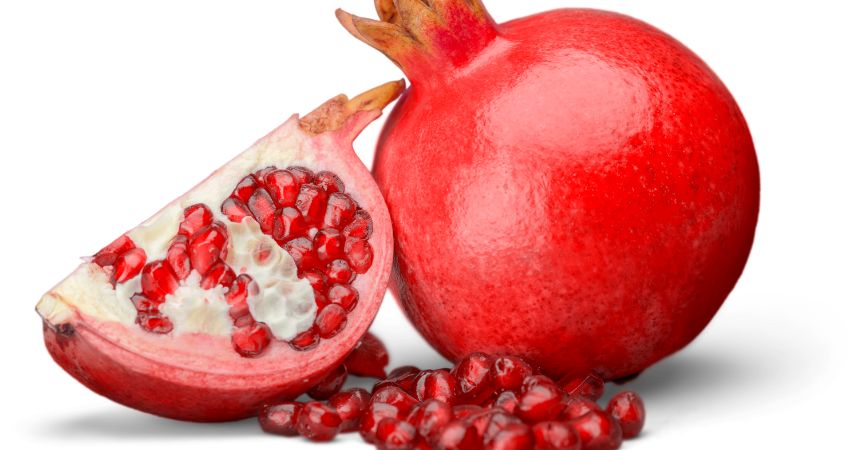
Like other fruits, pomegranates can help supplement the chinchilla’s diet, providing it with essential vitamins, minerals, and other nutrients. It is not only rich in vitamin C, but also calcium, fiber, protein, and carbohydrates. Even better, it is low in fat content.
In this table I have created the different nutrients pomegranates contain:
| Type of Nutrient | Nutritional Value per 28 g (Fresh Pomegranates) | Nutritional Value per 28 g (Dried Pomegranates) |
| Fat | 0.3 g | 1 g |
| Carbohydrates | 5.3 g | 17 g |
| Dietary Fiber | 1.1 g | 5.1 g |
| Protein | 0.5 g | 2 g |
| Sugar | 3.9 g | 14 g |
| Calcium | 2.8 mg | 10.1 mg |
| Iron | 0.1 mg | 0.8 mg |
When it comes to fruits, including pomegranates, chinchillas can only eat them in small amounts as treats. Thus, they should not eat fresh ones. Fresh fruits can cause Chinchilla’s stomach issues like diarrhea and potentially even death. Therefore, your pet rodent can only eat dried pomegranates.
Can Chinchillas Eat Dried Pomegranates?
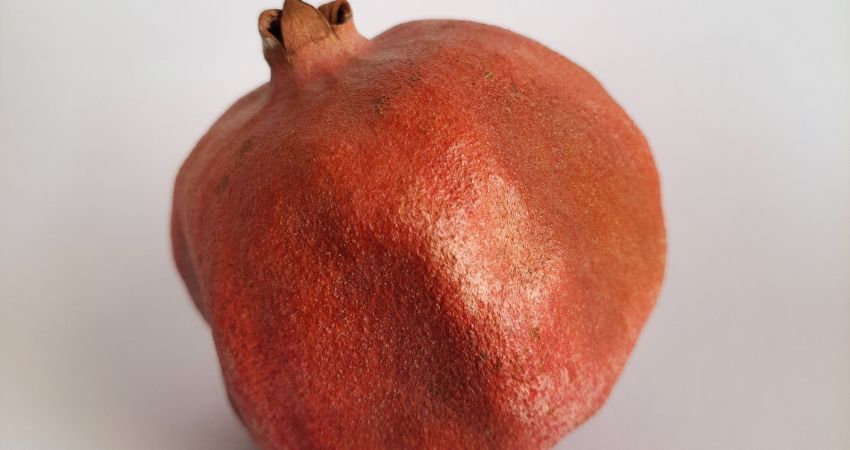
Yes. Chinchillas can eat them in moderation as they are richer in nutrients than fresh Pomegranates. The high sugar content can only be bad for your chins if you let them consume the dried pomegranates in large quantities.
Do Chinchillas Like Dried Pomegranates?
Chinchillas generally like dried fruits and dried pomegranates are not an exception. Besides, they taste like cranberries. And as it turns out, chins are like dried cranberries.
Are Dried Pomegranates Safe for Chinchillas to Eat?
Yes. Dried pomegranates are considered safe for chins to eat as an occasional treat and in small amounts. However, they are not safe when your chinchillas consume them in excessive amounts as they can cause digestive issues.
Health Benefits of Chinchillas Eating Pomegranates
There are several health benefits of chinchillas eating dried pomegranates in small amounts. These include:
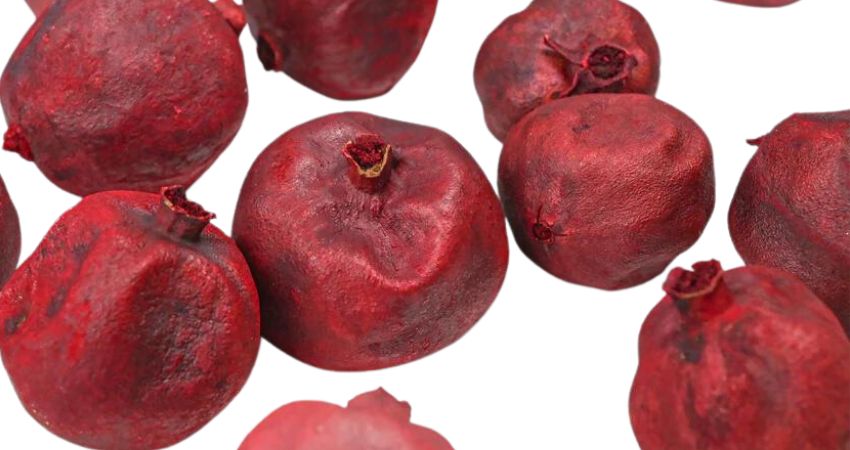
Rich in Carbohydrates
The diet of chinchillas should contain approximately 35% of carbohydrates. These nutrients serve as the chinchilla body’s principal source of energy. Dried pomegranates provide about 17 g or 6% of carbohydrates per 28 g.
Source of Fiber
Chinchillas need a fiber-rich diet for their digestive systems to function correctly. Their diet should contain around 15% to 35% of fiber. As it turns out, dried pomegranates contain about 5.1g or 18% of dietary fiber per 28g. Therefore, these fruits may help promote a healthy gut for your chinchilla.
Protein Content
Chinchillas’ diet should contain at least 15% to 20% of protein content to help them maintain muscle mass and strength. While dried pomegranates are not highly rich in this nutrient, they offer at least 2 g or 3% of protein content per 28 g.
Low in Fat
Chinchillas should not eat a diet containing more than 3.5% of fat. This is because high-fat foods may cause liver disease. As it turns out, dried pomegranates only contain 1 g or 1% fat per 28 g.
Rich in Antioxidants
Pomegranates are a rich source of polyphenol compounds. The polyphenols are packed with antioxidants, helping protect the cells of your chinchilla’s body against damage from free radicals. Consequently, this helps support the overall health of your pet rodent and prevent diseases.
How To Serve Pomegranates To Chinchillas?
The recommended serving size of pomegranates is about 1/4 teaspoon in their diet. But before feeding them the fruit, wash it thoroughly with clean water. Then, cut the fruit into small pieces. As for the seeds, you can serve your chin one or two.
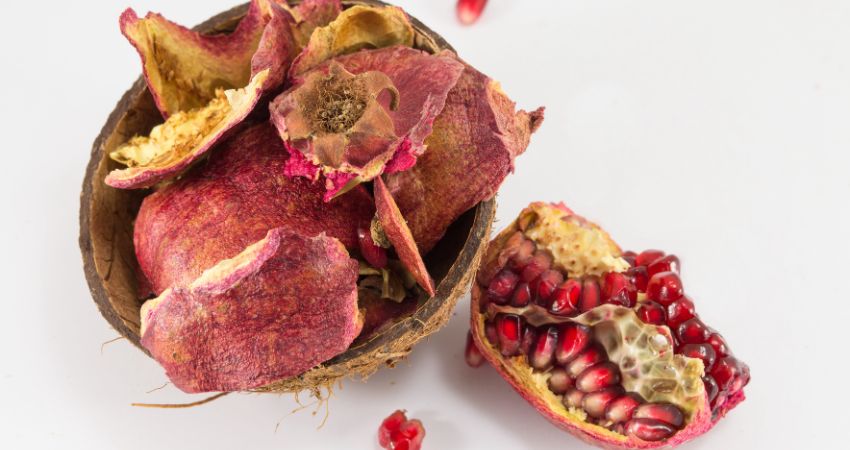
Like other fruits and vegetables, chinchillas should eat pomegranates between 2 and 4 times a week. This is because pomegranates are filled with natural sugar and moisture, which chinchillas are not used to.
How Often Can Chinchillas Eat Pomegranates?
Like other fruits and vegetables, chinchillas can eat pomegranates between 2 and 4 times a week. Serving size 1/4 teaspoon. This is because pomegranates are filled with natural sugar and moisture, which chinchillas are not used to.
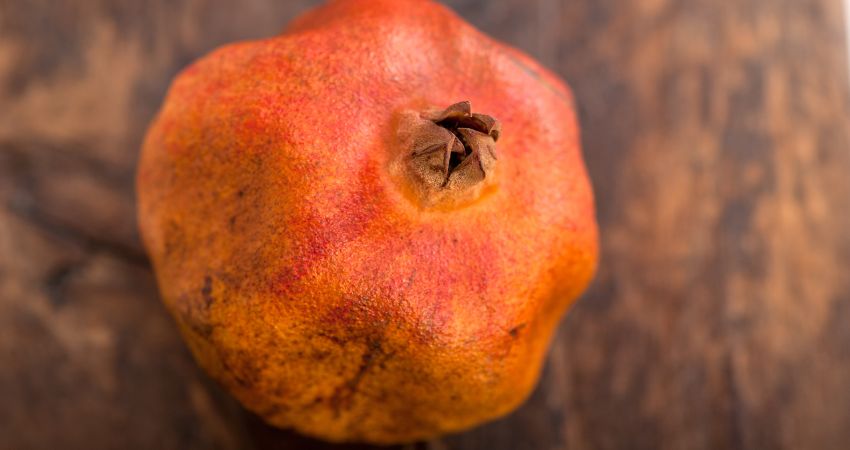
Pomegranates are not as rich in fiber, carbohydrates, and protein as other foods like hay. Therefore, your chinchilla may not meet its nutritional needs by regularly eating pomegranates.
Health Risks Of Overfeeding Pomegranates to Chinchillas
The risks of feeding pomegranates to chinchillas primarily occur when they eat them in large amounts. This is because these rodents have very sensitive stomachs. These risks include:
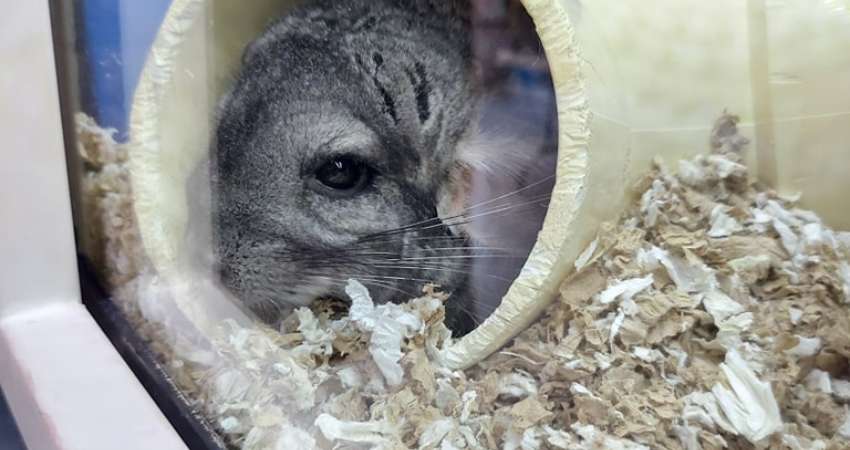
High Sugar Content
Chinchilla’s digestive systems usually have difficulties processing foods rich in sugars. And as it turns out, pomegranates are high in sugar content of about 14 g per 28 g. Therefore, your chinchilla may develop diarrhea from eating excessive amounts of this fruit.
High Water Content
Fresh pomegranates contain about 78% of moisture content. When dried, the fruit contains between 59% and 70% of water, which is still high. Generally, chinchillas require a diet low in moisture. This is because too much moisture may lead to bloating.
Acidic
Additionally, pomegranates are acidic with a pH level between 2.9 and 3.2. Although their acidity level is relatively low compared to other fruits like lemons, chinchillas may experience stomach problems from eating acidic fruits. This happens when you let your chinchilla eat too many pomegranates.
Alternatives Fruits to Feeding Chinchillas?
Generally, all the safe fruits recommended for Chinchillas to eat are high in sugar just like pomegranates. This explains why these pet rodents should eat all fruits in moderation and occasionally but should eat as dried. So then, what fruits can chinchillas eat? Some excellent alternatives to feeding pomegranates include:
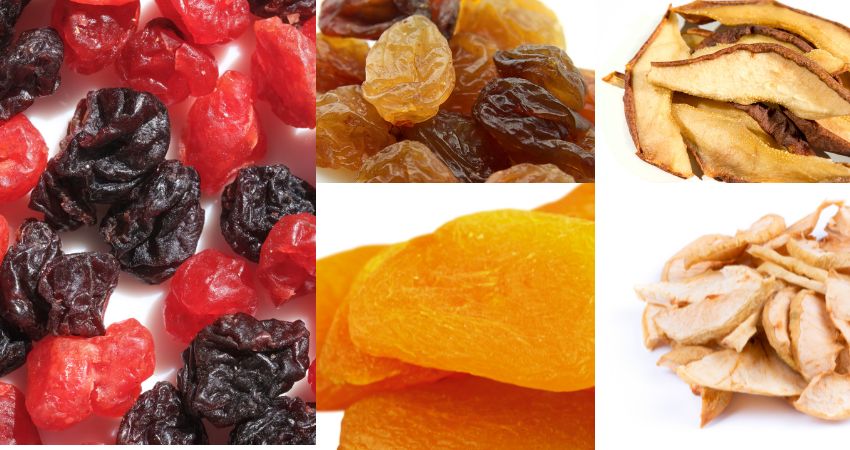
- Apples
- Blueberries, raspberries, and strawberries
- Grapes and apricots
- Raisins
- Pears
- Peaches
Can Chinchillas Eat Pomegranate Seeds?
Like the pomegranate fruit, the seeds also contain healthy nutrients, such as insoluble fiber. They are also rich in antioxidants. Therefore, chinchillas can safely eat them but sparingly in small quantities.
Can Chinchillas Drink Pomegranate Juice?
No. Chinchillas should not drink any type of fruit juice, including that of pomegranate. The juice is high in sugar and lacks many essential nutrients like fiber.
In the End
Pomegranates are in no way toxic to chinchillas. So your pet rodents can eat them. But like other safe fruits that these rodents can eat, there are several health benefits of chinchillas eating pomegranates. This is because they are rich in carbohydrates, fiber, and protein, but low in fat.
However, pomegranates also pose several risks to your chinchillas, like bloating and diarrhea. This is because they contain relatively high moisture content and sugar levels. The good news? You don’t have to worry about these risks as long as your pet rodents eat pomegranates in small amounts and occasionally.
